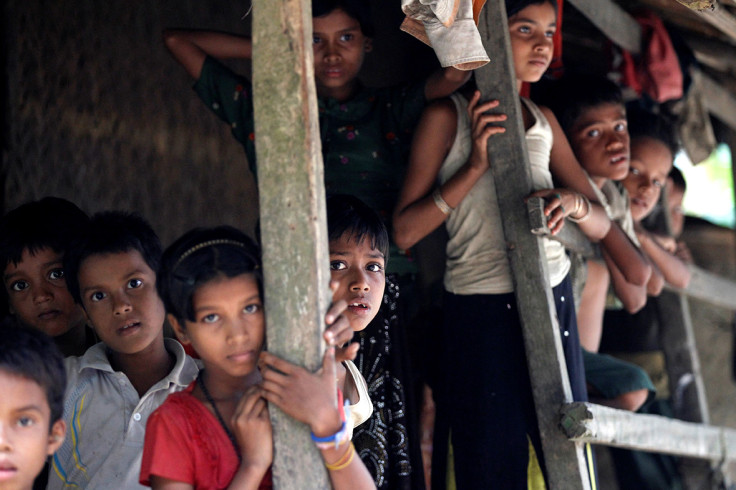Number of Rohingya fleeing Myanmar to Bangladesh rises sharply
Up to 22,000 Rohingya have fled from Myanmar's Rakhine state in the past week, says UN agency.

The number of ethnic Rohingya Muslims fleeing Myanmar to neighbouring Bangladesh has sharply increased in recent days, an UN agency has warned. In the last seven days alone, more than 22,000 Rohingya have fled Myanmar fearing an army crackdown.
According to figures released on Monday, 9 January, more than 65,000 Rohingya Muslims have left Myanmar, formerly Burma, since the conflict broke out in October.
The refugees "are residing in registered camps, makeshift settlements and host communities in Cox's Bazaar" in southern Bangladesh, said a weekly report by the UN Office for the Coordination of Humanitarian Affairs.
The violence in the restive Rakhine state, which shares a border with Bangladesh, has been raging for the past few weeks, with the Myanmar military strengthening its clampdown. Human rights groups say at least 130 Rohingya Muslims have been killed in the latest military campaign launched as retaliation for an extremist attack on three police outposts in the northern Rakhine State in October.
The ethnic Rohingya, who have allegedly been persecuted over the past few years, are often dubbed as a stateless minority and are branded illegal immigrants in the Buddhist-majority country. Tens of thousands of lives have been lost in overlapping ethnic conflicts, which have been plaguing Myanmar since its independence from Britain in 1948.
The last round of exodus began after the military launched its raids in Rakhine state with the Rohingya alleging traumatic experiences at the hands of Myanmar's security forces in the region. Their accounts often cannot be independently verified but rights groups active in the area strongly support their version. The government insists the claims are manufactured.
"There is a risk that we haven't seen the worst of this yet. We're not sure what the state security forces will do next, but we do know attacks on civilians are continuing," Matthew Smith of Fortify Rights, one of the NGOs working in the region, told the New York Times.
© Copyright IBTimes 2025. All rights reserved.






















